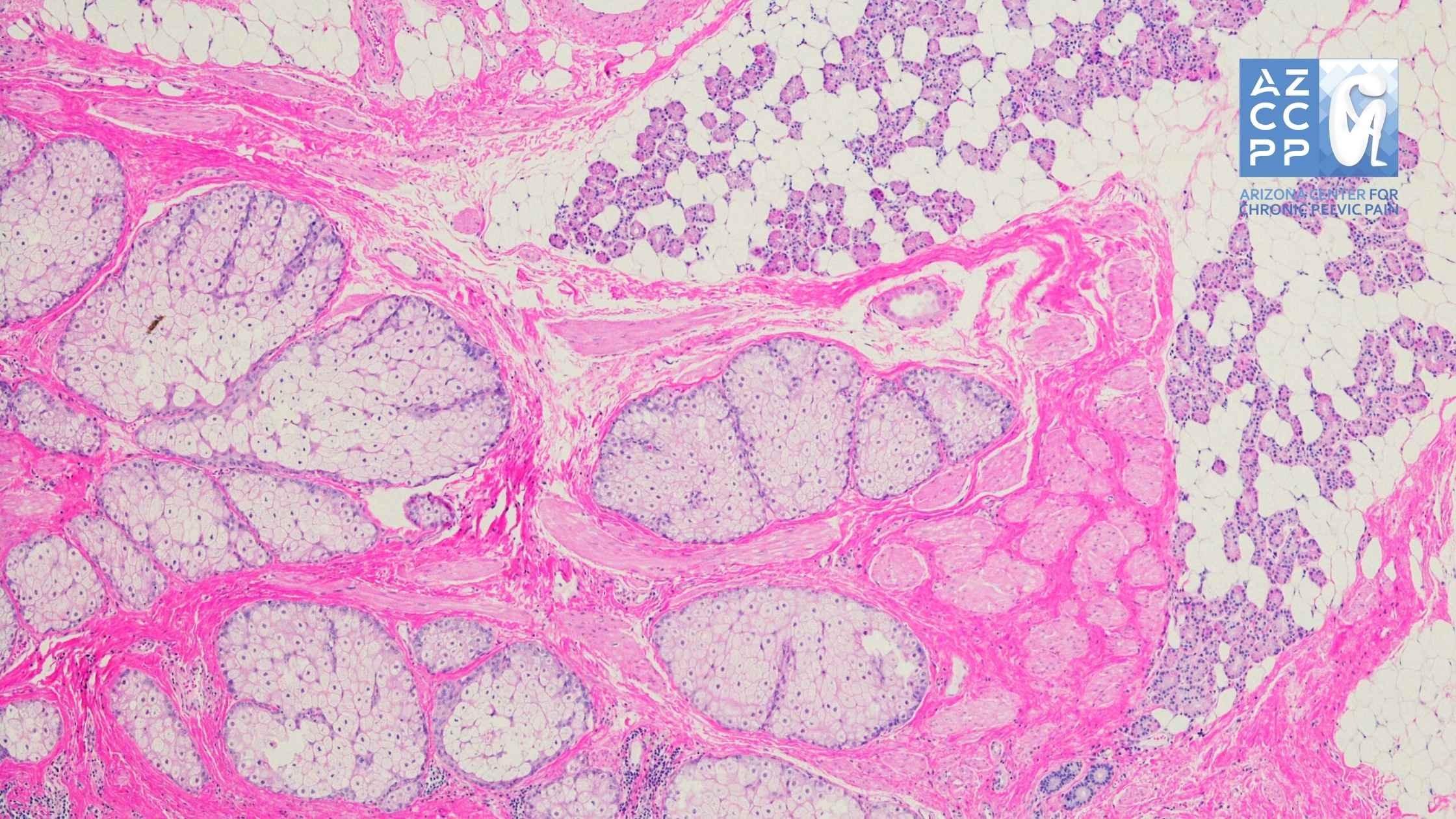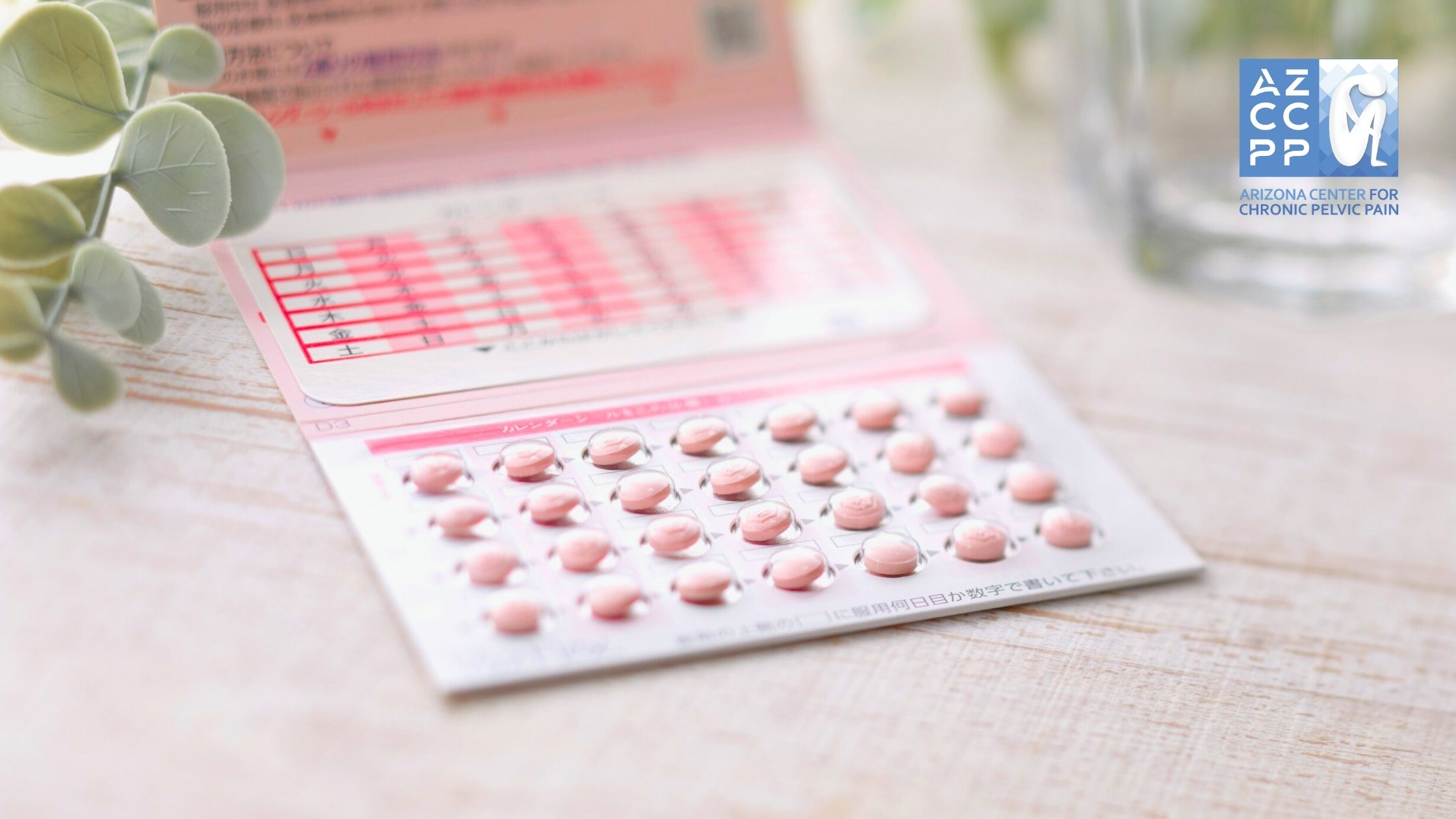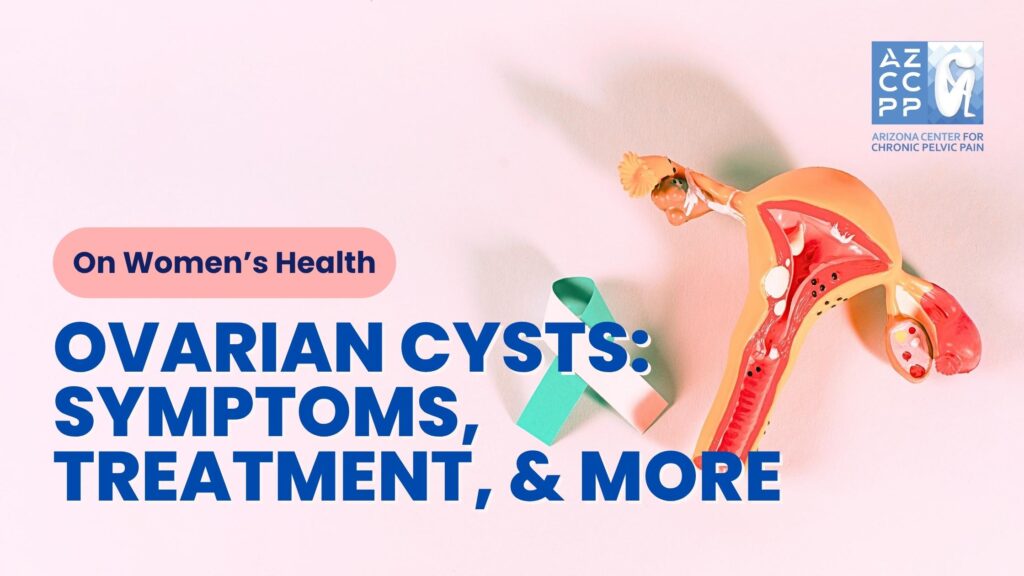At the Arizona Center for Chronic Pelvic Pain (AZCCPP), we specialize in diagnosing and treating conditions like ovarian cysts and chronic pelvic pain in women.
These conditions can significantly impact quality of life, and our expert team, led by pelvic pain doctor Michael Hibner, MD, PhD, is dedicated to providing compassionate, cutting-edge care.
This comprehensive guide explores ovarian cysts, their symptoms, causes, and advanced pelvic pain treatment options to empower women with the knowledge to take control of their health.
What Are Ovarian Cysts?
Ovarian cysts are fluid-filled sacs that develop on or within the ovaries, the reproductive organs responsible for egg production and hormone regulation. Most cysts are benign and resolve naturally, but some can lead to chronic pelvic pain in women or other complications requiring medical intervention.
According to Michael Hibner, MD, PhD, Pelvic Surgeon and founder of AZCCPP,
“Ovarian cysts are incredibly common, but their impact varies widely. Early diagnosis is key to preventing complications like rupture or torsion.”
Cysts vary in size, from as small as a pea to larger than a grapefruit, and their characteristics depend on their type. While many women experience no symptoms, others may face debilitating pelvic pain or fertility challenges. At AZCCPP, we use state-of-the-art diagnostics to identify the type and severity of cysts, ensuring tailored pelvic pain treatment plans.
Types of Ovarian Cysts

Understanding the type of ovarian cyst is critical for effective pelvic pain treatment. Here are the most common types:
-
Functional Ovarian Cysts
These cysts form during the menstrual cycle and are typically harmless. Follicular cysts occur when a follicle fails to release an egg, while corpus luteum cysts develop after egg release if the follicle seals improperly. Most functional cysts resolve within 1–3 months without intervention.
-
Dermoid Ovarian Cysts
Also called teratomas, dermoid cysts are unique because they may contain tissues like hair, skin, or even teeth. Though usually benign, their size or location can cause chronic pelvic pain in women, often requiring surgical removal by a skilled pelvic pain doctor.
-
Endometriomas
Linked to endometriosis, endometriomas form when uterine-like tissue grows on the ovaries, leading to painful, blood-filled cysts. These can impact fertility and are a common cause of chronic pelvic pain in women. At AZCCPP, we specialize in managing endometriosis-related cysts.
-
Cystadenomas
Cystadenomas are benign growths filled with watery or mucous-like fluid. Large cystadenomas can press on surrounding organs, causing pelvic pain or bloating, and may necessitate surgical intervention for relief.
Symptoms of Ovarian Cysts and When to Seek Help

Many ovarian cysts are asymptomatic, discovered incidentally during routine exams. However, when symptoms arise, they can significantly disrupt daily life. Common signs include:
-
Pelvic Pain
This can range from a dull ache to a sharp, sudden pain. It may be worse during certain activities or during menstruation.
-
Bloating or Abdominal Swelling
A large cyst can make the abdomen feel full or swollen.
-
Changes in Bowel Habits
Some women may experience constipation or diarrhea if a cyst presses on the rectum.
-
Painful Intercourse
Deep pelvic pain during or after sex can be a sign of an ovarian cyst.
-
Abnormal Menstrual Bleeding
Cysts can sometimes cause irregular periods or heavier bleeding than usual.
When to Seek Medical Attention

Michael Hibner, MD, PhD, emphasizes,
“Persistent or severe symptoms should never be ignored. Conditions like ovarian torsion or cyst rupture can escalate quickly, requiring immediate care.”
Seek urgent medical attention if you experience:
- Sudden, severe pelvic pain
- Nausea or vomiting
- Fever or chills
- Dizziness or fainting
- Rapid breathing
At AZCCPP, our team is equipped to handle emergencies, ensuring prompt diagnosis and pelvic pain treatment.
Diagnosis of Ovarian Cysts
Accurate diagnosis is the cornerstone of effective pelvic pain treatment. At the Arizona Center for Chronic Pelvic Pain, we employ advanced diagnostic tools to evaluate ovarian cysts:
-
Ultrasound
Transvaginal or abdominal ultrasound is the gold standard for identifying cysts. It reveals the cyst’s size, location, and composition, helping our pelvic pain doctor determine whether it’s benign or requires further investigation.
-
CT Scan or MRI
For complex cases, we may use CT scans or MRIs to gain a detailed view of the cyst and surrounding structures, ensuring precise pelvic pain treatment planning.
-
Blood Tests
Tests like CA-125 can assess the risk of ovarian cancer, particularly in postmenopausal women or those with suspicious cysts. Elevated levels may prompt further evaluation.
Our multidisciplinary approach ensures that every patient receives a thorough assessment, tailored to their unique symptoms and medical history.
Advanced Pelvic Pain Treatment Options for Ovarian Cysts
At AZCCPP, we offer a range of pelvic pain treatment options, customized to the cyst’s type, size, and symptoms. Our goal is to alleviate chronic pelvic pain in women while preserving fertility and overall health.
-
Watchful Waiting
For small, asymptomatic functional cysts, we often recommend monitoring with regular ultrasounds. Many resolve naturally within a few menstrual cycles, avoiding unnecessary intervention.
-
Medications
To manage pelvic pain, we may prescribe pain relievers like ibuprofen or acetaminophen. Hormonal contraceptives, such as birth control pills, can prevent new cysts by regulating ovulation, particularly for women prone to functional cysts.
-
Minimally Invasive Surgery
When cysts are large, persistent, or symptomatic, surgical removal may be necessary. At AZCCPP, we specialize in laparoscopic surgery, a minimally invasive technique that uses small incisions and a camera to remove cysts with minimal scarring and faster recovery. In rare cases, open surgery may be required for complex cysts.
Preventing Ovarian Cysts and Chronic Pelvic Pain

While not all ovarian cysts can be prevented, certain strategies can reduce their likelihood:
-
Hormonal Contraceptives
Birth control pills can help regulate the menstrual cycle and prevent the formation of some types of cysts.
-
Regular Pelvic Exams
These exams can help detect ovarian cysts early, when they are most easily treatable.
-
Healthy Lifestyle
Maintaining a balanced diet and regular exercise supports hormonal health, potentially reducing cyst formation.
Our team works closely with patients to develop proactive plans that minimize recurrence and promote long-term wellness.
Living with Ovarian Cysts: What to Expect
Being diagnosed with an ovarian cyst can feel overwhelming, but most are benign and manageable with proper care. At AZCCPP, we provide comprehensive support, from diagnosis to recovery. Regular follow-ups ensure cysts are monitored, and any new symptoms are addressed promptly. Our Pelvic Pain Doctor team empowers women to understand their condition and make informed decisions about their pelvic pain treatment.
For those with chronic pelvic pain in women, we offer holistic care that addresses physical, emotional, and psychological aspects. Support groups, counseling, and pain management strategies complement medical treatments, helping women reclaim their quality of life.
Why Choose AZCCPP for Ovarian Cysts and Pelvic Pain Treatment?
The Arizona Center for Chronic Pelvic Pain stands out as a leader in treating ovarian cysts and chronic pelvic pain in women. Our founder, Michael Hibner, MD, PhD, brings unparalleled expertise as a board-certified pelvic surgeon with a focus on minimally invasive techniques.
Our state-of-the-art facility in Arizona combines advanced diagnostics, personalized treatment plans, and compassionate care to deliver exceptional outcomes.
We understand that pelvic pain can be isolating, but you don’t have to face it alone. Our team is committed to helping you navigate your diagnosis with confidence and support.
Conclusion
Ovarian cysts and chronic pelvic pain in women are common but treatable conditions. With early detection, accurate diagnosis, and personalized pelvic pain treatment, you can regain control of your health and live free from discomfort.
At the Arizona Center for Chronic Pelvic Pain, we combine expertise, compassion, and cutting-edge technology to deliver results that transform lives. Don’t let pelvic pain hold you back—reach out to our expert pelvic pain doctor team today.

Partner with AZCCPP for Expert Pelvic Pain Treatment
Struggling with ovarian cysts or chronic pelvic pain in women? The AZCCPP team, led by Dr. Michael Hibner, offers specialized care tailored to your unique needs.
Whether you’re dealing with persistent pelvic pain, fertility concerns, or complex cysts, our team develops customized treatment plans to address your symptoms and restore your quality of life. From advanced diagnostics to minimally invasive surgery, we’re here to guide you every step of the way.
With decades of experience in pelvic pain treatment, AZCCPP is Arizona’s trusted destination for women’s pelvic health. Our compassionate approach ensures you feel heard, supported, and empowered throughout your journey. We understand the physical and emotional toll of chronic pelvic pain in women, and our multidisciplinary team is dedicated to helping you achieve lasting relief.
Ready to take the next step? Contact the Arizona Center for Chronic Pelvic Pain today at (480) 599-9682 or email [email protected]. You may also check out AZCCPP on YouTube for more questions that need answers with Dr. Michael Hibner.
We proudly serve the Phoenix metro area, including Scottsdale, Chandler, and Mesa. Follow us on social media for patient stories and expert insights. Let our Pelvic Pain Doctor team help you reclaim your health—schedule your consultation now!
References
- Farghaly, S. A. (2023). Management of ovarian cysts in premenopausal women: A review of current practices. Journal of Women’s Health, 32(4), 345–352.
- Patel, M. D., & Feldstein, V. A. (2024). Ultrasound evaluation of ovarian masses: Diagnostic accuracy in Arizona-based cohorts. Ultrasound in Obstetrics & Gynecology, 63(2), 189–197.
- Smith, J. R., & Hibner, M. (2023). Laparoscopic management of pelvic pain and ovarian cysts: Outcomes from an Arizona center. American Journal of Obstetrics and Gynecology, 229(5), 512–520.

